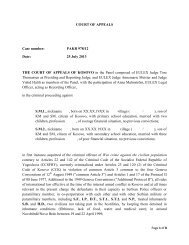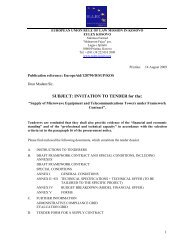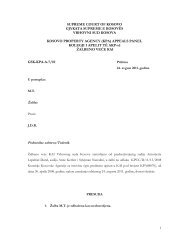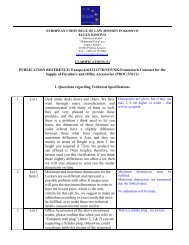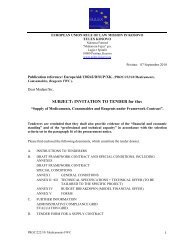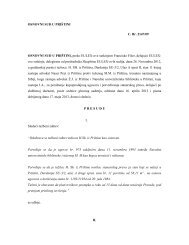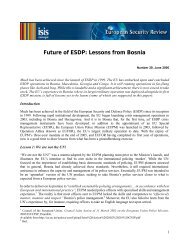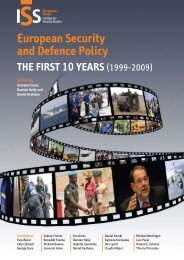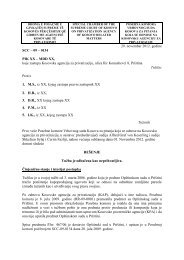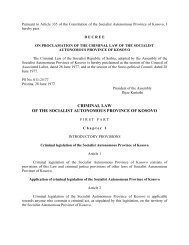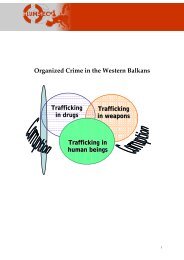English - Eulex
English - Eulex
English - Eulex
Create successful ePaper yourself
Turn your PDF publications into a flip-book with our unique Google optimized e-Paper software.
Skender Islami et alia<br />
The trial in this case was concluded on 25 January 2008 in Pristina District Court. The defendants were<br />
found guilty of criminal offences including participation in a group that commited a criminal act. This<br />
case is connected with the 17 March 2004 riots in Fushe Kosova/Kosovo Polje. Among the group of five<br />
defendants, Skender Islami (sentenced to eight years) and one other defendant (sentenced to seven years)<br />
were in detention in Dubravë/a Prison, while the other three defendants were free pending the appeal.<br />
The case was transferred to the EULEX judges in the Supreme Court on 20 January 2009. The panel, composed<br />
of two EULEX judges and one Kosovo judge, announced the verdict on 20 October 2009, partially granting<br />
the appeals of four of the defendants including Skender Islami, and acquitting the fifth defendant of all<br />
charges against him. Skender Islami was sentenced to three years and six months of imprisonment. Two of<br />
the other three defendants were sentenced to one year and six months and the third to two years and six<br />
months in prison. The time spent in detention on remand was included in the term of the punishments.<br />
The court further decided that the four defendants must jointly reimburse the costs of the proceedings.<br />
The court also revoked the first instance decision on property claims, and instructed the injured parties to<br />
pursue their property claims in civil litigation.<br />
The main arguments for the decision were summarized by the presiding EULEX judge as follows:<br />
1) Statements on which the first instance verdict was based had been given by juveniles in the capacity<br />
of suspects without the assistance of a defence counsel, which was mandatory. Consequently, they were<br />
radically illegal and could not be used either for challenging the declarations of witnesses and defendants<br />
or for reconstituting the facts;<br />
2) The criminal offence of participating in a crowd can not be concurrent with the graver offence of causing<br />
general danger, but is to be absorbed in it.<br />
Sadri Shabani et alia<br />
Sadri Shabani and five other defendants were charged with aggravated murder, causing general danger,<br />
participation in a group that commits a criminal act, illegal possession of weapons and ammunition and<br />
suppression of evidence. The allegations were related to the murder of a Kosovo Serb and the serious<br />
injury suffered by his mother during the March 2004 riots in Gjilan/Gnjilane.<br />
The first instance Gjilan/Gnjilane District Court found the defendants guilty of participation in a group<br />
which took the victim’s life, inflicted serious bodily injury on his mother, and considerably damaged the<br />
house of the victim and at least one car.<br />
The punishments varied from 16 years to 2 years and 6 months of imprisonment. Apart from one, all<br />
defendants appealed against the verdict; their appeals were heard in the Supreme Court on 23 June 2009.<br />
23



